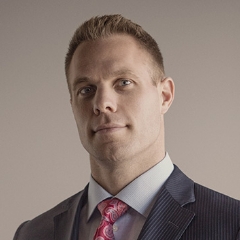When a person gives evidence in an Alberta court, he/she must recite the following line:
“I swear to tell the truth, the whole truth, and nothing but the truth”.
While most of us are familiar with this line, few people have to face the consequences of violating this oath.
Regardless of who you are and how powerful your position is, when you swear this oath in court, it means that everything you say afterward is either the truth or perjury.
Perjury is a criminal offence and it is taken very seriously by the Alberta justice system because it directly obstructs the main goal of the system — to uncover the truth.
Perjuring yourself in court can lead to prosecution and lengthy jail time, so it is important to understand the perjury laws here.
What is perjury?
Perjury is the crime of lying under oath. Traditionally, it meant lying in court but its definition has evolved with the times to cover not only court-based trials but also grand juries, family law court hearings, bail hearings and depositions in civil lawsuits.
The meaning even extends to sworn statements made to governmental agencies such as the Social Security Administration or in financial affidavits.
Perjury is addressed in Section 131 of the Canadian Criminal Code as follows:
“…every one commits perjury who, with intent to mislead, makes before a person who is authorized by law to permit it to be made before him a false statement under oath or solemn affirmation, by affidavit, solemn declaration or deposition or orally, knowing that the statement is false.”
Section 13 of the Canadian Charter of Rights and Freedoms also states the following:
“a witness who testifies in any proceedings has the right not to have any incriminating evidence so given used to incriminate that witness in any other proceedings, except in a prosecution for perjury or for the giving of contradictory evidence”.
So, the truth-seeking function of a person’s testimony is considered paramount in court, even where the evidence may incriminate the witness. Witnesses are protected by the Canadian Charter up to a point and cannot refuse to answer a question on the grounds that what they say may incriminate them.
Under Canadian law, it’s also a criminal offence to persuade or cause another person to commit perjury (called “suborning perjury”).
What is the punishment for perjury in Alberta?
The punishment for misleading the justice system by perjury in Alberta is harsh. It is an indictable offence, for which the maximum sentence here is 14 years in prison.
Perjury and truth-seeking in court in Alberta
The perjury laws are designed to protect the role of the courts in seeking the truth. They help ensure that evidence given under oath is truthful.
The laws also deliver protection to those giving evidence, to help ensure that a person responsible for the commission of an offence is encouraged to testify about it without fear that the evidence heard in court can be used against them for other criminal charges.
For instance, in some criminal cases in Alberta, the defendant has a witness who can exonerate him/her because the witness committed the crime.
The defence counsel must ensure that the witness receives independent legal advice in this situation. If the witness speaks to anybody about his/her involvement in the crime besides a lawyer or under oath in court, it could be used as the basis for criminal prosecution.
Perjury vs not being believed
Perjury is not the same as there being doubt about evidence delivered in court or not being believed.
The only way for evidence to be used against a person speaking under oath in court is if it can be proven beyond a reasonable doubt that the witness intentionally gave false evidence while under oath.
If the witness is not believed or someone discovers a falsehood in the evidence provided that was unintentional, it is not enough for a claim of perjury. Even if a trial judge states that he/she does not believe the witness, it does not automatically lead to a charge of perjury unless an intentional lie can be proven beyond a reasonable doubt.
To put it another way, perception of dishonest testimony is not the same as actual dishonest testimony — as important as the judge’s perception clearly is in criminal cases.
Only if the evidence provided by a witness is corroborated in significant detail by evidence that implicates the accused in perjury can it lead to a conviction.
The penalties are harsh but the burden of proof is necessarily high in perjury cases.
Common defences to perjury
With the serious potential penalties, anyone accused of perjury must discuss their situation with an experienced and qualified Calgary perjury lawyer.
Your defence lawyer will consider the available defences to provide the best possible chance of the case being dismissed or acquittal at trial. Generally, one of the following defences will be applied:
True statements
If you made a true statement, you cannot be convicted of perjury. So, a common defence is to prove that the statements(s) you made were, in fact, true — even if they intentionally misled the court.
The prosecution must prove that you knowingly said or wrote something that is not true.
Recanted or corrected statements
Witnesses can sometimes recant statements made to the court. This does not always save a defendant from prosecution, however. Much depends on where the case is heard — provincial or federal court — and when the recantation occurs.
Often, if the recantation is not enough to drop the charges, it is taken into account by the judge when sentencing.
Generally, if the recantation is made during the same hearing and did not substantially affect the legal proceedings, the justice system is more likely to be lenient towards a person accused of perjury.
Call us to arrange a confidential consultation
To speak with Cory Wilson or arrange a free, no-obligation consultation with Wilson Criminal Defence, call 403-978-6052 or email us here.


